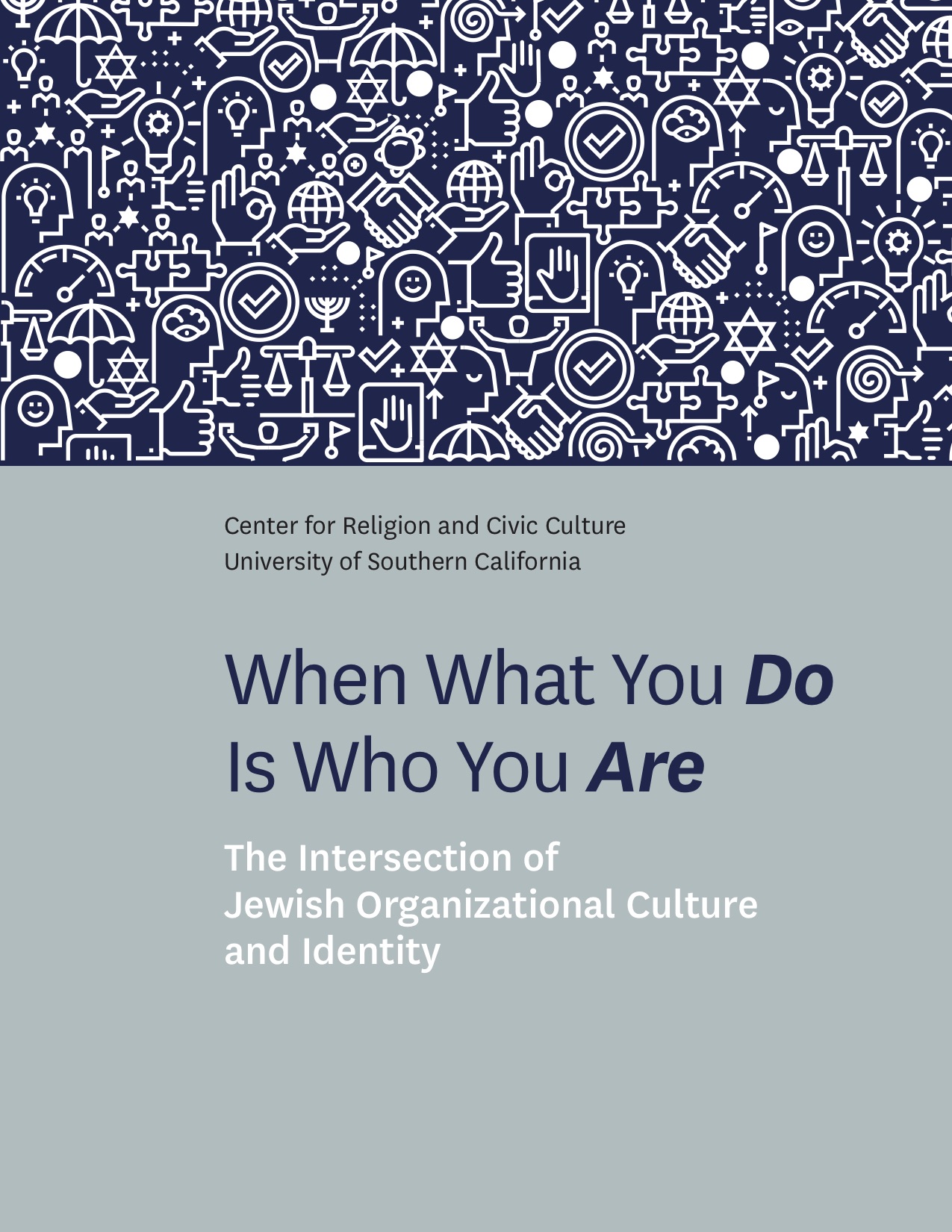“By the time Shabbat comes around, I don’t want to see another Jew or think about anything Jewish.”
I have heard variations on that statement countless times over the years that I have worked as a sociologist of American Jewry. More than 15 years ago, that common refrain animated my dissertation research about how working in Jewish organizations affected the Jewish identities of young professionals. I wanted to understand what happens when what you do is who you are—when your career is an expression of a fundamental aspect of your identity. So, in 2002, I conducted in-depth interviews with 48 Jewish young adults (ages 22 to 38) who were employed at Jewish organizations in Boston, New York, San Francisco and Los Angeles. The study focused on understanding how their personal histories and experiences in Jewish organizations informed their perceptions of Jewish community and influenced their sense of self as Jews.
Many of the Jewish professionals I interviewed described how working in the Jewish communal sector enabled them to live integrated and authentic lives. They thought of their work as an expression of their Jewish identities. Their exposure to a multiplicity of Jewish organizations and ideas increased their sense of connection to Jewish tradition, culture and community. Having dense and overlapping social and professional networks was a point of pride and a source of fulfillment.
I also heard stories about how working in Jewish organizations negatively affected their sense of self as Jews. Most of the young adults I interviewed said they did not see themselves in the Jewish communal sector over the long term, and few felt proud to identify as Jewish communal professionals. Instead, they conceded that they were simply “Jews who have Jewish jobs.” The findings illustrated how their exposure to organizational culture shaped their perspectives about the larger Jewish communal sector and contributed to their reluctance to identify as Jewish communal professionals.
This research project builds on the findings of the original study and offers insights gathered 15 years later from 25—roughly half—of the original research subjects, who are all currently employed by Jewish organizations. In circling back to members of the original sample, I wanted to understand why they chose to stay in the Jewish communal sector, when so few believed they would. Specifically, I hoped that examining their experiences over time would provide insights to address concerns about recruitment and retention that have persisted in the Jewish communal sector since the 1950s. I also wanted to understand how these tensions at the intersection of individual identity and Jewish organizational culture add complexity to the proposition that “what you do is who you are.”
Toward both of those ends, this study illustrates how Jewish professionals co-create Jewish organizational culture with their peers and colleagues and provides ethnographic detail about the benefits and challenges of working in the sector. It details the ways respondents experience organizational structures that are often steeply hierarchical and plutocratic, and gives voice to their reflections about how they have learned to navigate challenging power dynamics. The findings illustrate the primary strategies that respondents use to manage those relationships—including silencing themselves and turning to their peers for support—which ultimately contribute to the dysfunctions in their organizations. Their perspectives also shed light on the primacy of relationships in shaping their positive experiences at work. Of fundamental importance are their long-lasting connections with those they consider both friends and colleagues. Finally, this study illustrates how respondents’ experiences at work influence how they choose to engage with Jewish ritual and tradition, the extent of their communal involvement, and their sense of belonging to their actual and conceptual Jewish communities.
Over the past several years, there has been a resurgence of attention to recruitment and retention challenges in the Jewish communal sector. As with the broader nonprofit sector in the United States, the imminent retirement of large numbers of Baby Boomers means that the majority of Jewish nonprofits must find new executive leadership in the coming years. The urgency of these efforts has increased with the growing awareness of the impending “leadership gap,” which is projected to result as current leaders retire and fewer young adults choose to enter the nonprofit sector.
Many studies have sought to better understand the nature and extent of the challenges facing the sector by examining the connection between Jewish organizational culture and issues of recruitment and retention. Several themes reverberate through the research. Scholars describe challenges related to supervision and identify the need for more effective mentoring and professional development opportunities. Studies point to the lack of professional standards and the need for greater professionalism and accountability. High turnover rates, burnout and employees’ intention to leave their jobs and the field have also been highlighted. The lack of advancement opportunities, gender inequity, and the struggle to maintain work/life balance all affect organizational culture, which is “a critical contributor to, and inhibitor of, talent cultivation” within the Jewish nonprofit community.
The current study complements previous research by exploring the social construction of Jewish organizational culture. Using longitudinal analysis, this work uncovers the relational dynamics that shape Jewish organizations. It adds vital insight into how Jewish organizational culture develops over time, which is critical to understanding how it can be improved.
At the heart of this study is a tension that is alive in most nonprofit organizations. Dynamics in organizations that seek to contribute to human flourishing can enhance or diminish the possibilities for flourishing among their employees. In identity-based organizations, such dynamics can be even more consequential. Identity-based work can result in both adaptive and maladaptive outcomes for individuals, organizations and the communities they serve.
For Jewish professionals, like others who engage in work that intersects with identity, their experiences at work help shape their individual and collective identities. There are also implications for Jewish organizations, since professionals’ attitudes toward their work environments affect their performance, which is key to organizational success. For this reason, attending to Jewish organizational culture provides an opportunity to strengthen the Jewish community from the inside out. Creating a flourishing Jewish organizational culture is essential to nurturing a thriving American Jewish community.
Click here to read the full report
Tobin Belzer is a contributing fellow with the USC Center for Religion and Civic Culture.






